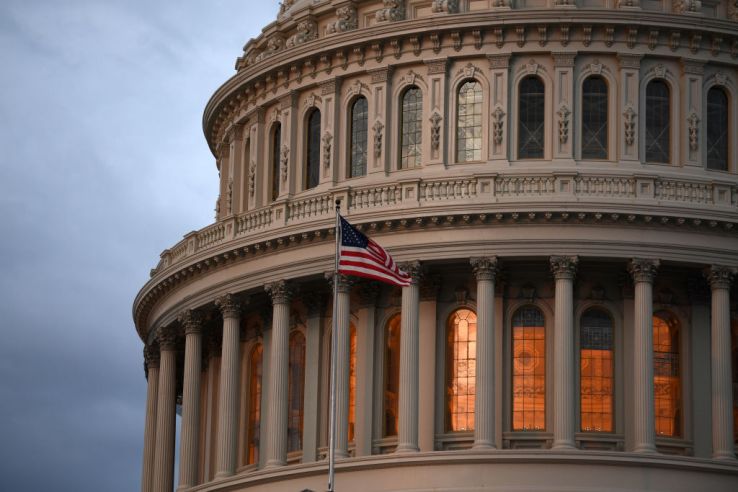

Two leading Democrats in Congress are calling for new disclosures from Facebook and Twitter about Russian disinformation campaigns on their platforms.
In a letter, Rep. Adam Schiff and Sen. Dianne Feinstein, minority leads on the House Intel and Senate Judiciary committees respectively, called for the two tech companies to release any information that have about Russian ties to the recent social media campaign around a controversial memo written by Republican Rep. Devin Nunes. The pair argues that there is evidence that Russian bots promoted Nunes’ political agenda and the public deserves to know about it, citing last week’s Business Insider story “Russia-linked Twitter accounts are working overtime to help Devin Nunes and WikiLeaks.”
The new Russian bot debate surrounds a hashtag known as #releasethememo. #Releasethememo sprung up to call on Congress to declassify the Nunes memo, which is either a damning account of corruption in the investigation into Russia’s efforts to undermine the 2016 election or a craven gesture to create political cover for a doomed president, depending on who you ask.
As Feinstein and Schiff’s letter argues, #releasethememo is tainted by Russian influence:
Specifically, on Thursday, January 18, 2018, the House Permanent Select Committee on Intelligence (HPSCI) Majority voted to allow Members of the U.S. House of Representatives to review a misleading talking points “memo” authored by Republican staff that selectively references and distorts highly classified information. The rushed decision to make this document available to the full House of Representatives was followed quickly by calls from some quarters to release the document to the public.
Several Twitter hashtags, including #ReleaseTheMemo, calling for release of these talking points attacking the Mueller investigation were born in the hours after the Committee vote. According to the German Marshall Fund’s Alliance for Securing Democracy, this effort gained the immediate attention and assistance of social media accounts linked to Russian influence operations.
Senators Sheldon Whitehouse and Richard Blumenthal also published a similar letter on Tuesday calling on Twitter specifically to answer questions about Russian disinformation campaigns and related political hashtags.
The letter goes on to request that Twitter and Facebook examine these links to “Russian influence operations,” including “the frequency and volume of their postings on this topic” and “how many legitimate Twitter and Facebook account holders have been exposed to this campaign.” With a request for this information by January 26, the members of Congress give the two companies a deadline they’re unlikely to meet, assuming they choose to cooperate. If the companies do conduct an investigation and issue reports on #releasethememo, Feinstein and Schiff’s play could easily backfire. We should know by now that 1) these companies aren’t particularly good at conducting comprehensive internal analyses on foreign disinformation campaigns and 2) tons of fake news and political propaganda is generated domestically too. Still, the more info on this kind of stuff that Congress can wring out of Facebook and Twitter, the better.
Nunes, who serves as the chairman of the House Intel Committee, is a controversial figure. That committee, along with considerably less chaotic Senate counterpart, is investigating Russian interference in the U.S. election. Last year, Nunes created a lot of attention for himself by amplifying misleading claims that the Obama administration had “wiretapped” President Trump (for clarification on this bit, read a little about how a FISA warrant is obtained. Hint: It doesn’t involve the White House). His memo purports to provide evidence, or at least talking points, around the claim that the FBI somehow abused the Foreign Intelligence Surveillance Act (FISA) in its effort to surveil Trump campaign adviser Carter Page.
Given his proven track record of partisanship and pandering to the White House, it’s difficult to take something authored by Nunes that seriously, regardless of what it claims to prove. Still, a broader Republican effort to release the memo suggests that a chunk of Congress thinks (or hopes) it might cause a stir. Oddly enough, many of those same Republican members of Congress just voted overwhelmingly to support Section 702, a portion of FISA that would appear to contradict the position of outrage over recent “wiretapping” claims.
Whatever ends up coming of the potentially Russia-influenced effort to #releasethememo, it’s clear that after dragging Facebook and Twitter over the coals on Russia, some members of Congress are happy to casually knock on tech’s door for evidence that might undermine their political opposition. Whether that’s good (transparency!) or bad (partisanship!), it’s definitely strange, and we can expect tech’s relationship with Congress to get even stranger in 2018.
The full letter is embedded below.
Featured Image: Matt McClain/Getty Images

